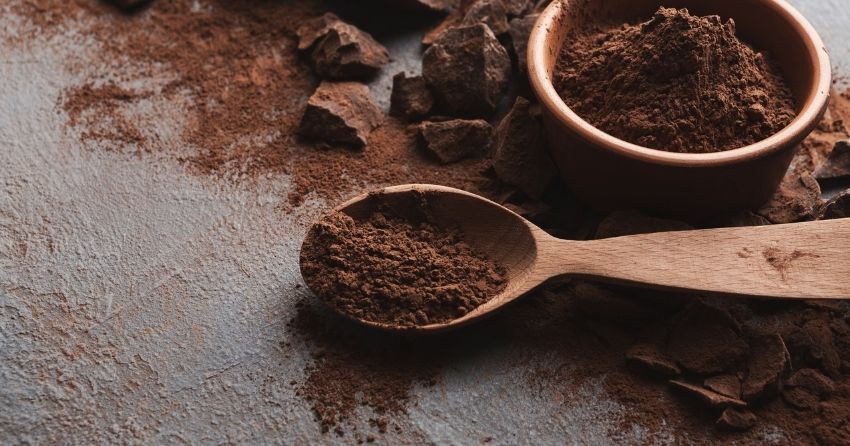Large Trial Shows Cocoa Flavanols Reduce Cardiovascular-Related Death By 27%

-
A large trial of over 21,000 adults found that a cocoa flavanol supplement benefited heart health more than a multivitamin.
-
This included a 27 percent reduction in cardiovascular-related death and a 10 percent reduction in total cardiovascular events (although not statistically significant).
-
The trial (called COSMOS) was not a chocolate trial — it was a cocoa extract supplement that contains levels of cocoa flavanols that a person could never realistically consume from eating chocolate (500 mg/d flavanols, including 80 mg epicatechins)
This article was posted on EurekAlert.org: [may be edited for content or length]
The first large-scale trial to test the long-term effects of a cocoa flavanol supplement to prevent cardiovascular [events] offers promising signals that cocoa flavanols could have protective cardiovascular effects. In papers published in The American Journal of Clinical Nutrition, a team led by Howard Sesso, ScD, MPH, and JoAnn Manson, MD, DrPH, both of the Division of Preventive Medicine at Brigham and Women’s Hospital, unpacks the main outcomes of the COcoa Supplement and Multivitamin Outcomes Study (COSMOS), a randomized, placebo-controlled trial that tested a cocoa flavanol supplement and a multivitamin in the prevention of cardiovascular [events]. While neither supplement significantly reduced the primary outcome of total cardiovascular events, people randomized to receive the cocoa flavanol supplement had a 27 percent lower rate of cardiovascular death, a pre-specified secondary endpoint.
“When we look at the totality of evidence for both the primary and secondary cardiovascular endpoints in COSMOS, we see promising signals that a cocoa flavanol supplement may reduce important cardiovascular events, including death from cardiovascular [events],” said Sesso. “These findings merit further investigation to better understand the effects of cocoa flavanols on cardiovascular health.”
“Previous studies have suggested health benefits of flavanols — compounds in several plant-based foods including cocoa, tea, grapes, and berries,” said Manson. “COSMOS was not a chocolate trial — rather, it’s a rigorous trial of a cocoa extract supplement that contains levels of cocoa flavanols that a person could never realistically consume from chocolate without adding excessive calories, fat, and sugar to their diet.”
Smaller, short-term trials have found cardiovascular benefits for cocoa flavanols on blood pressure and blood vessel dilation. COSMOS offered the first opportunity to study if a cocoa flavanol supplement might also lead to longer-term reductions in clinical cardiovascular events.
The primary cardiovascular outcome for the cocoa flavanol intervention was a composite of total cardiovascular events. More than 21,000 participants were randomized to take daily capsules that contained 500 mg cocoa flavanols (donated by Mars Edge), a multivitamin tablet (donated by GSK Consumer Healthcare), neither or both.
The study found that cocoa flavanols reduced total cardiovascular events by 10 percent, but this was not statistically significant. However, several secondary analyses provided broader support for a potential benefit of cocoa flavanols on cardiovascular events. First, those receiving the cocoa flavanol supplement had a significant 27 percent reduction in death from cardiovascular [events]. Second, when the study team took adherence to study pills into account (by looking at those taking their study pills regularly), the team saw a stronger, 15 percent reduction in total cardiovascular events and a 39 percent reduction in death from cardiovascular [events]. Third, a composite endpoint of major cardiovascular events, although not a trial focus, was also significantly reduced. The authors note in their report that their promising results on cocoa flavanols and cardiovascular events warrant cautious interpretation and underscore the need for additional research.
A daily multivitamin had no significant effect on total or individual cardiovascular events. There were no safety concerns for either cocoa flavanols or a multivitamin.
“Although our study suggests intriguing signals for cardiovascular protection with cocoa flavanols, any health benefits due to taking these supplements will need confirmation in a future trial,” said Manson. Adds Sesso: “Our message for consumers is to eat a healthy, balanced diet, rich in natural food sources of flavanols, and to stay tuned as we further evaluate other important health outcomes in COSMOS.”
Funding: The Cocoa Supplement and Multivitamin Outcomes Study (COSMOS) is supported by an investigator-initiated grant from Mars Edge, a segment of Mars dedicated to nutrition research and products, which included infrastructure support and the donation of cocoa extract-containing study pills and packaging. Pfizer Consumer Healthcare (now part of GSK Consumer Healthcare) provided support through the partial provision of study pills (Centrum Silver) and packaging. COSMOS is also supported in part by grants AG050657, AG071611, EY025623, and HL157665 from the National Institutes of Health, Bethesda, MD. The Women’s Health Initiative (WHI) program is funded by the National Heart, Lung, and Blood Institute, National Institutes of Health, U.S. Department of Health and Human Services through contracts 75N92021D00001, 75N92021D00002, 75N92021D00003, 75N92021D00004, 75N92021D00005. Neither company had a role in the trial design or conduct, data collection (other than blinded assays supported by Mars Edge and completed independently), data analysis, or manuscript preparation or review.
Papers cited:
Sesso HD, Manson JE, et al. “Effect of Cocoa Flavanol Supplementation for Prevention of Cardiovascular Events: The COSMOS Randomized Clinical Trial” The American Journal of Clinical Nutrition DOI: 10.1093/ajcn/nqac055
JOURNAL
American Journal of Clinical Nutrition





